
Copernical Team
If the world were coming to an end, what would be the most ethical way to rebuild humanity off-planet?
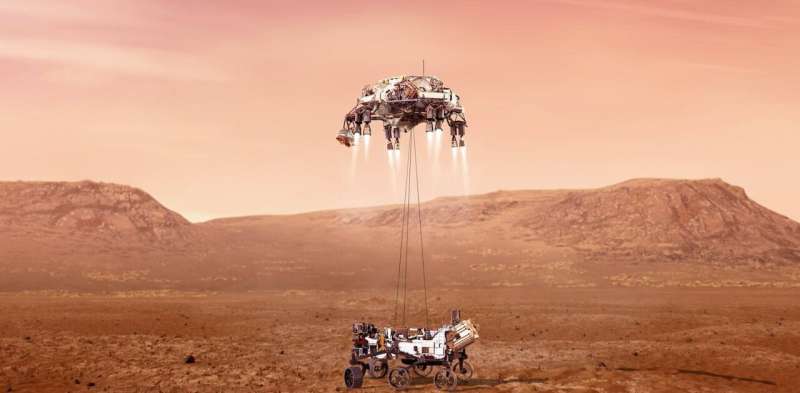
Last week, scientists announced that for the first time on record, Antarctic ice has failed to "substantially recover" over winter, in a "once in 7.5-million-year event." Climate change is the most likely culprit.
Petra Heil, a sea ice physicist from the Australian Antarctic Division, told the ABC it could tip the world into a new state. "That would be quite concerning to the sustainability of human conditions on Earth, I suspect."
And in March, a senior United Nations disarmament official told the Security Council the risk of nuclear weapons being used today is higher than at any time since the end of the Cold War.
Both warnings speak to concerns about Earth's security. Will our planet be able to support human life in the future? And if not, will humanity have another chance at survival in space?
'Billionauts' and how to choose who goes
Over the past few years, we've witnessed the rise of the "billionaut." The ultra-wealthy are engaged in a private space race costing billions of dollars, while regular citizens often condemn the wasted resources and contribution to global carbon emissions.
Most Americans support NASA but don't think it should prioritize sending people to space
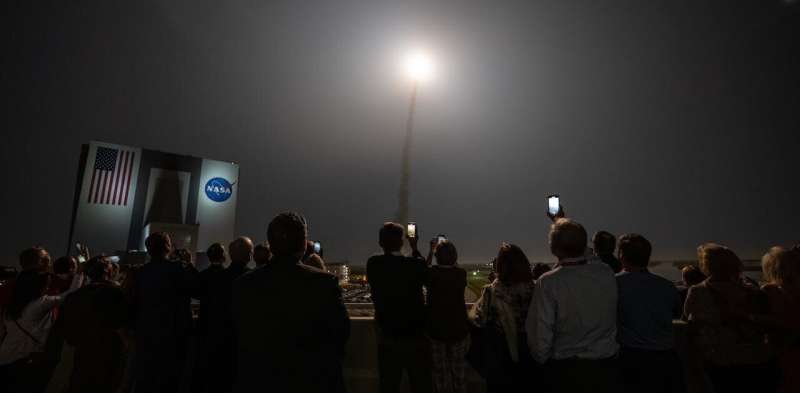
Most Americans (69%) believe it is essential that the United States continue to be a world leader in space. But only a subsection of that group believes NASA should prioritize sending people to the moon, according to a new report released by the Pew Research Center. The study surveyed over 10,000 U.S. adults on their attitudes toward NASA and their expectations for the space industry over the next few decades.
As scholars who study international relations in space and the history of the space program, we are interested in understanding how Americans view space activities, and how their perspectives might affect the future of both U.S. and global space developments.
US dominance in space
The United States' most visible effort to maintain world leadership in space is arguably its Artemis Program to land humans on the moon by late 2024.
Curiosity rover faces its toughest climb yet on Mars
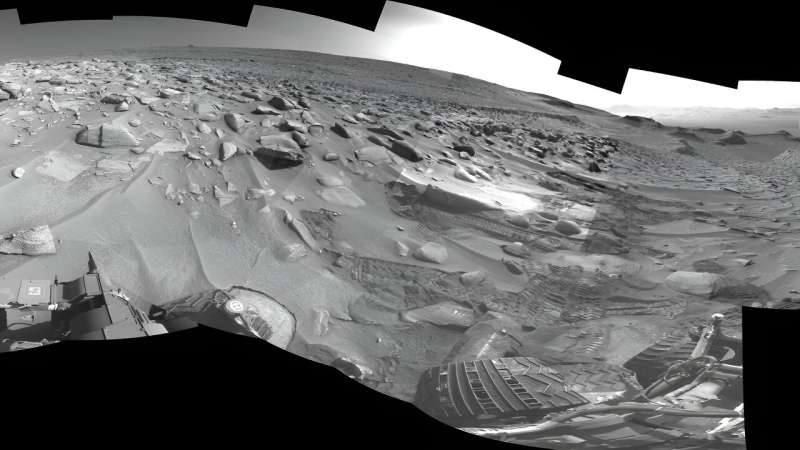
On Aug. 5, NASA's Curiosity rover will notch its 11th year on Mars by doing what it does best: studying the Red Planet's surface. The intrepid bot recently investigated a location nicknamed "Jau" that is pockmarked with dozens of impact craters. Scientists have rarely gotten a close-up view of so many Martian craters in one place. The largest is estimated to be at least as long as a basketball court, although most are much smaller.
Huge solar arrays permanently installed on NASA's Psyche spacecraft
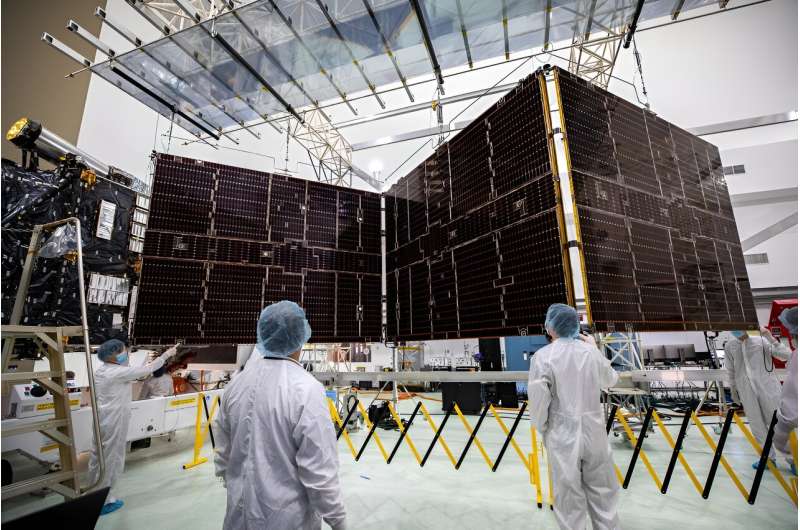
The Psyche mission is speeding toward its Oct. 5 launch date, preparing for the last of its launch-preparation milestones.
Robotically unfurling in a clean room near NASA's Kennedy Space Center in Florida, the Psyche spacecraft's jumbo solar arrays were tested and permanently installed on the orbiter in preparation for its 2.5 billion-mile (4 billion-kilometer) journey to study a metal-rich asteroid. The launch period opens Oct.
XRISM mission ready to explore universe's hottest locales
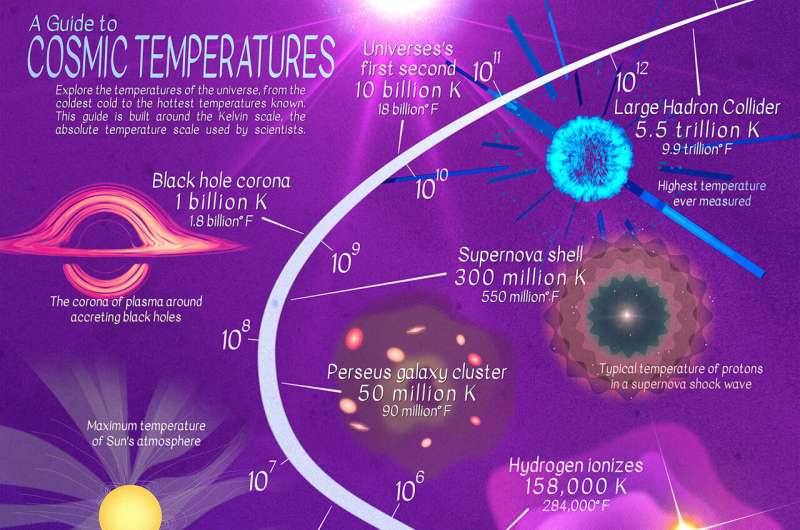
Japan's XRISM (X-ray Imaging and Spectroscopy Mission, pronounced "crism") observatory, expected to launch Aug. 25 (Aug. 26 Japan local time), will provide an unprecedented view into some of the hottest places in the universe. And it will do so using an instrument that's actually colder than the frostiest cosmic location now known.
China's Chang'e-7 will deploy a hopper that jumps into a crater in search of water ice
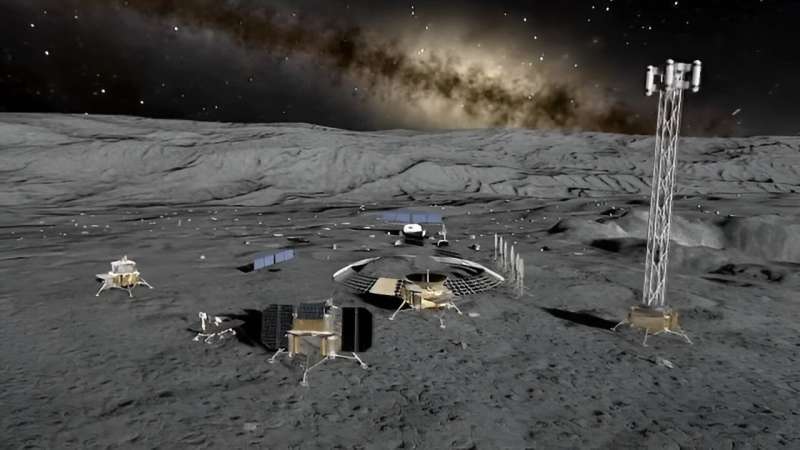
Researchers from the Chinese Academy of Sciences and the Chinese National Space Administration recently published a study in the journal Space: Science & Technology outlining how the upcoming Chang'e-7 mission, due to launch in 2026, will use a combination of orbital observations and in-situ analyses to help identify the location, amount, and dispersion of water-ice in the permanently-shadowed regions (PSRs) of the moon, specifically at the lunar south pole.
Once the Chang'e-7 orbiter successfully achieves lunar orbit, it will deploy a lander and mini-flying probe with both designed to perform in-situ analyses of lunar water-ice while the orbiter is expected to conduct remote observations using a variety of instruments.
The paper discusses how the mini-flying probe, which will be equipped with a water molecular analyzer to collect lunar surface frost water molecules, will be capable of flying from the sunlit regions on the lunar south pole to the dark bottom of the impact craters within the PSRs, which conventional lunar rovers were never designed to do, thus providing an enormous benefit to using this new robotic explorer.
Just add AI for smarter satnav... from rogue drone detection to safer driving
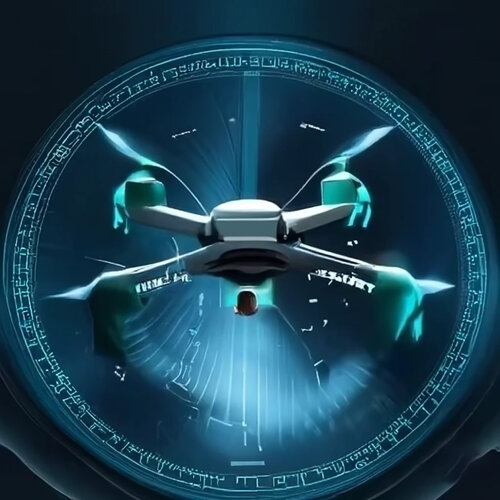
With our society producing more data than ever before, Artificial Intelligence, AI, is allowing us to gather, analyse and make use of it in novel ways, including in space programmes. Now AI is also being applied to satellite navigation by the engineering teams of ESA’s NAVISP programme, working with European industry and academia to invent the future of navigation. The result is a growing portfolio of prototype services, variously employed to improve space and Earth weather forecasting, enhance the performance of autonomous cars and boats, and help identify rogue drones in sensitive airspace.
Captain Kirk to the holodeck: Shatner beams in to remote meeting
 More than half a century after he materialized on far-flung planets as Captain James T. Kirk of the Starship Enterprise, William Shatner has beamed into a distant land in a demonstration of hologram technology.
The "Star Trek" actor was a guest speaker at an advertising conference in Sydney, Australia, where his lifelike image appeared in a box like a giant action figure - despite his being
More than half a century after he materialized on far-flung planets as Captain James T. Kirk of the Starship Enterprise, William Shatner has beamed into a distant land in a demonstration of hologram technology.
The "Star Trek" actor was a guest speaker at an advertising conference in Sydney, Australia, where his lifelike image appeared in a box like a giant action figure - despite his being Dune patterns reveal environmental change on Earth and other planets
 Dunes, the mounds of sand formed by the wind that vary from ripples on the beach to towering behemoths in the desert, are incarnations of surface processes, climate change, and the surrounding atmosphere. For decades, scientists have puzzled over why they form different patterns.
Now, Stanford researchers have found a way to interpret the meaning of these patterns. Their results, published
Dunes, the mounds of sand formed by the wind that vary from ripples on the beach to towering behemoths in the desert, are incarnations of surface processes, climate change, and the surrounding atmosphere. For decades, scientists have puzzled over why they form different patterns.
Now, Stanford researchers have found a way to interpret the meaning of these patterns. Their results, published China launches Fengyun-3 satellite
 China on Thursday launched a satellite into space from the Jiuquan Satellite Launch Center in Northwest China.
The Fengyun-3 06 satellite was launched at 11:47 am (Beijing Time) by a Long March-4C carrier rocket and successfully entered the planned orbit.
The launch marked the 481st flight mission of the Long March series carrier rockets.
span class="BDL">Source: Xinhua News A
China on Thursday launched a satellite into space from the Jiuquan Satellite Launch Center in Northwest China.
The Fengyun-3 06 satellite was launched at 11:47 am (Beijing Time) by a Long March-4C carrier rocket and successfully entered the planned orbit.
The launch marked the 481st flight mission of the Long March series carrier rockets.
span class="BDL">Source: Xinhua News A 
